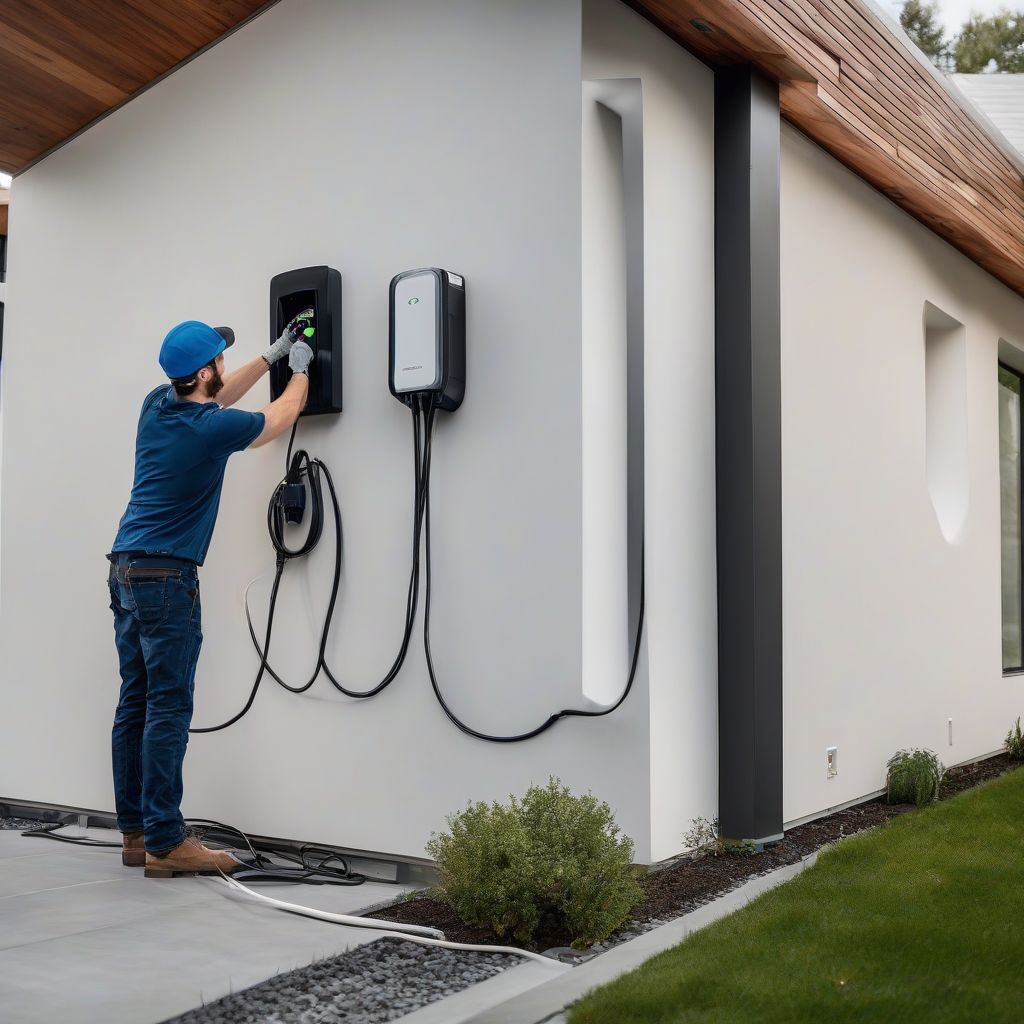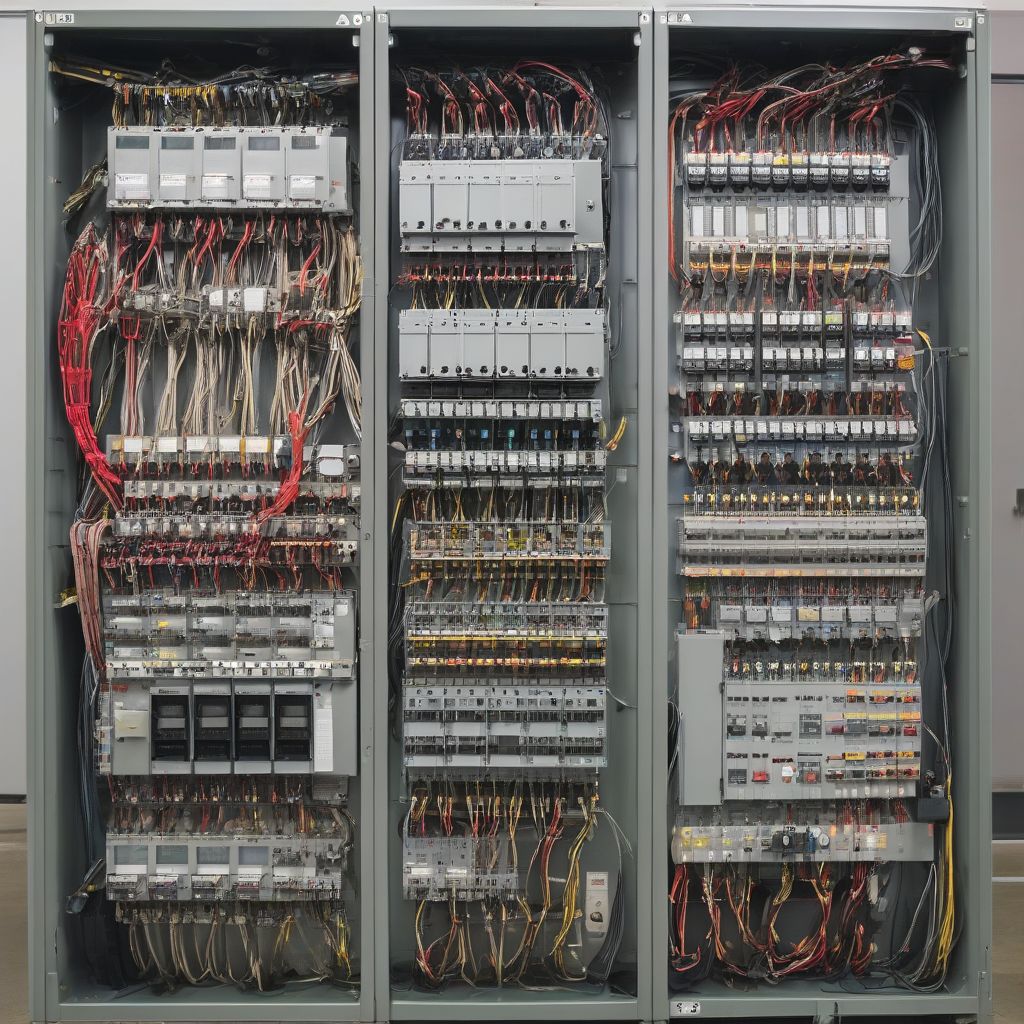The automotive industry is experiencing a seismic shift towards electric vehicles (EVs). As more people recognize the environmental and economic benefits of EVs, the demand for convenient and accessible charging infrastructure grows. This brings us to the crux of this guide – Electric Car Charging Installation. Understanding this process, whether you’re a homeowner, a business owner, or just EV-curious, is essential to embracing the future of transportation.
Understanding the Essentials of Electric Car Charging
Before delving into the specifics of installation, let’s clarify some fundamentals about EV charging:
EV Charging Levels and Their Significance
Not all charging is created equal. Three primary levels determine how quickly your EV replenishes its battery:
- Level 1 Charging: The most basic level uses a standard 120-volt household outlet. While convenient, it’s the slowest method, typically providing 2-5 miles of range per hour of charging.
- Level 2 Charging: This level requires a 240-volt outlet, similar to those used for electric dryers. It offers significantly faster charging speeds, ranging from 10-60 miles of range per hour.
- DC Fast Charging: Also known as Level 3 charging, this method utilizes direct current and specialized equipment to deliver the fastest charging rates, up to 80% charge in 30 minutes for compatible vehicles. You’ll typically find these at dedicated charging stations.
Key Considerations for Your Electric Car Charging Installation
Choosing the right charging solution depends on various factors, including your driving habits, budget, and home’s electrical capacity. Here’s a breakdown:
- Assessing Your Charging Needs: Consider your daily commute, typical driving range, and how frequently you anticipate needing a charge.
- Evaluating Your Home’s Electrical System: Level 2 charging, often the preferred choice for home installation, might require upgrading your electrical panel or circuits to handle the increased load.
- Exploring Incentives and Rebates: Many governments and utility companies offer financial incentives to encourage EV adoption, including rebates on charging equipment and installation costs.
Navigating the Electric Car Charging Installation Process
Now, let’s unpack the installation process itself. While it’s always recommended to consult with qualified electricians, understanding the general steps can help you make informed decisions:
1. Choosing the Right Charger and Installer
- Selecting a Charger: Consider your vehicle’s charging requirements, the desired charging speed (Level 1 or Level 2), and additional features like smart charging capabilities or cable management systems.
- Finding a Qualified Electrician: Look for electricians experienced with EV charger installations and knowledgeable about local building codes and permit requirements.
2. Site Assessment and Planning
- Determining the Optimal Charging Location: Factors include proximity to your electrical panel, ease of access for plugging in, and available space for the charging unit.
- Assessing Electrical Capacity: A qualified electrician will evaluate your home’s electrical service to determine if it can handle the additional load of an EV charger.
3. Installation and Connection
- Running Conduit and Wiring: The electrician will install a dedicated circuit from your electrical panel to the charging location, using appropriate conduit and wiring for safety and code compliance.
- Mounting the Charging Station: The EV charger will be securely mounted on a wall or pedestal, depending on your chosen location and charger type.
4. Inspection and Testing
- Ensuring Safety and Compliance: Once the installation is complete, the electrician will inspect the work to ensure it meets all safety standards and building codes.
- Testing Functionality: Before finalizing the installation, the electrician will test the charging station’s functionality to guarantee it charges your EV safely and efficiently.
 Electrician Installing EV Charger
Electrician Installing EV Charger
Addressing Common Queries about Electric Car Charging Installation
Let’s address some frequently asked questions that often arise during the decision-making process:
1. What is the Average Cost of Electric Car Charging Installation?
Installation costs vary widely depending on factors like your location, charger type, electrical upgrades, and labor costs. On average, homeowners can expect to pay between $700 to $2,500 for a Level 2 charger installation.
2. Are Permits Required for EV Charger Installation?
Most areas require permits for electrical work, including EV charger installations. It’s crucial to check with your local building department to understand the specific requirements in your area.
3. Can I Install an EV Charger Myself?
While it’s technically possible for individuals with electrical experience, it’s highly recommended to hire a qualified electrician. EV charger installation involves working with high-voltage circuits, and incorrect installation can pose significant safety risks and potentially void warranties.
The Future is Electric, and It Starts at Home
Installing an electric car charging station at your home is an investment in the future. It not only adds convenience to your daily life but also contributes to a greener, more sustainable transportation ecosystem. As you embark on your EV journey, remember that informed decisions and professional installation are key to a seamless and electrifying experience.

